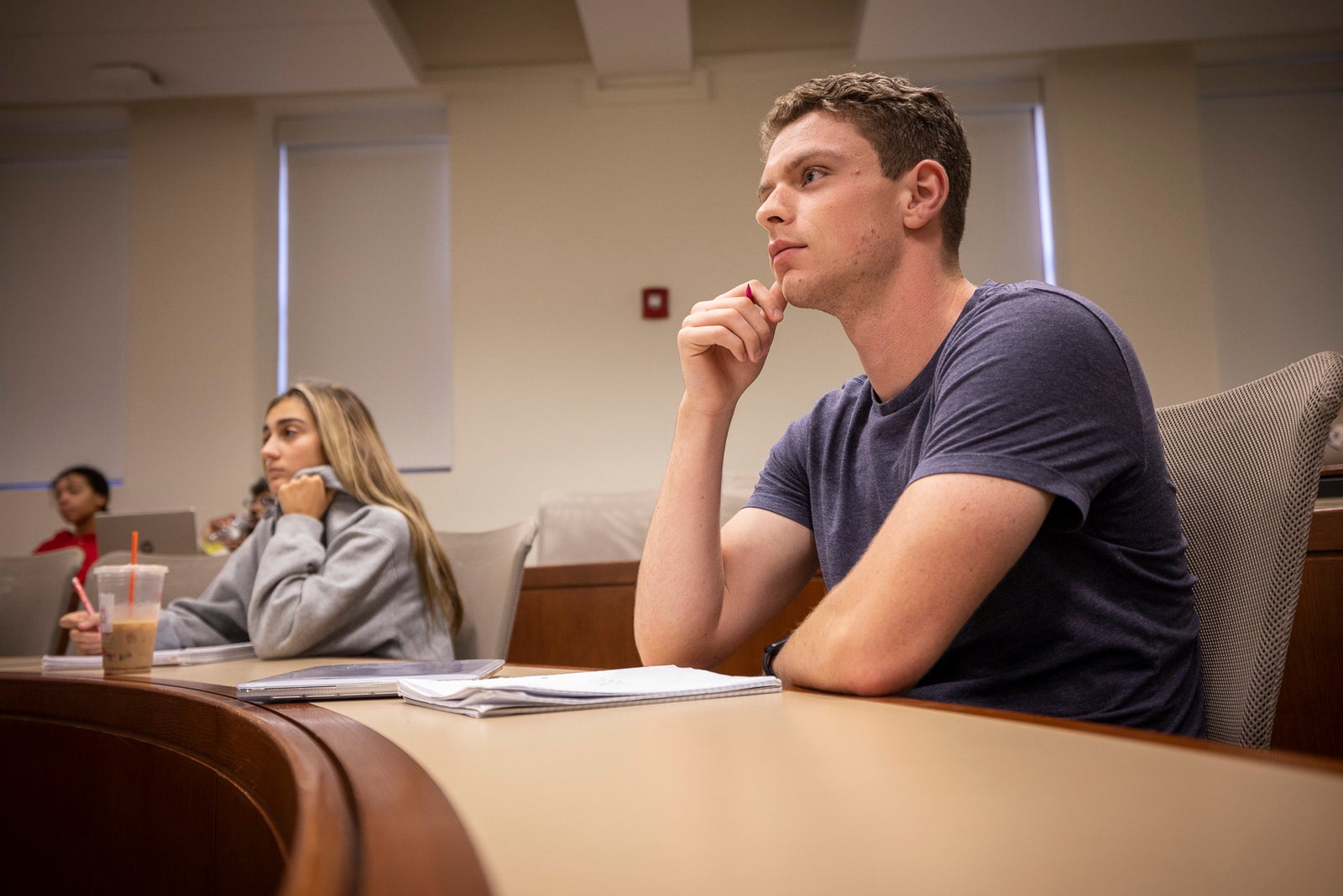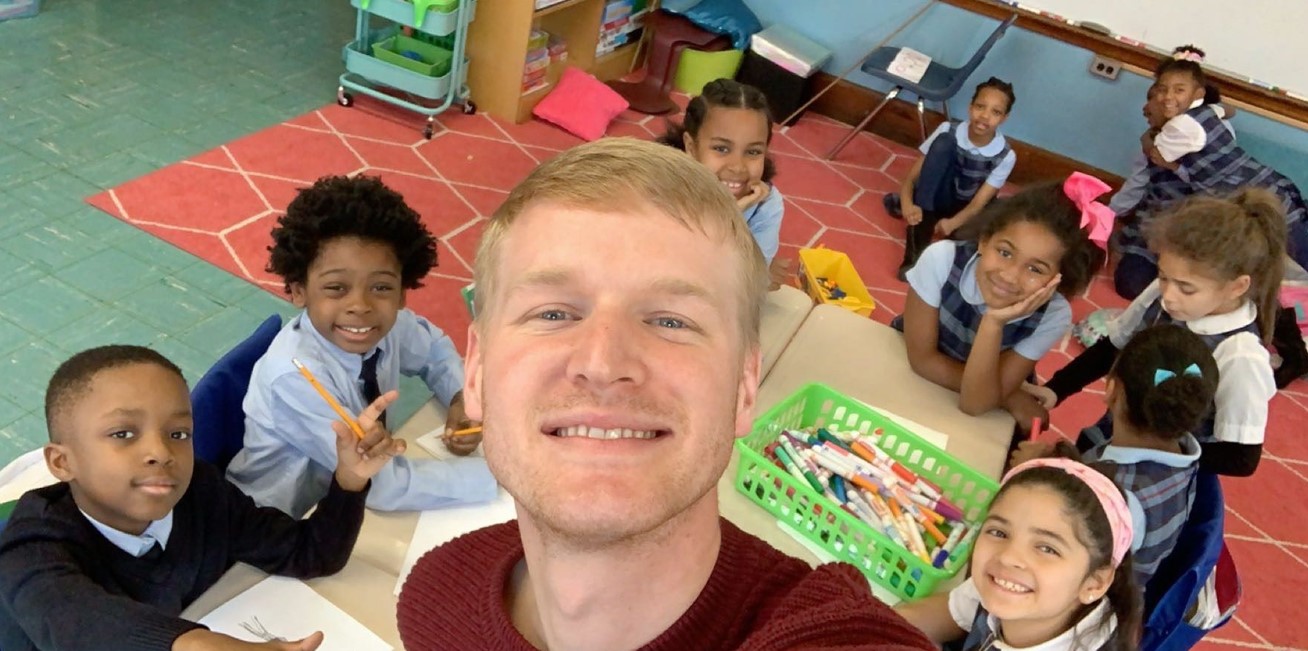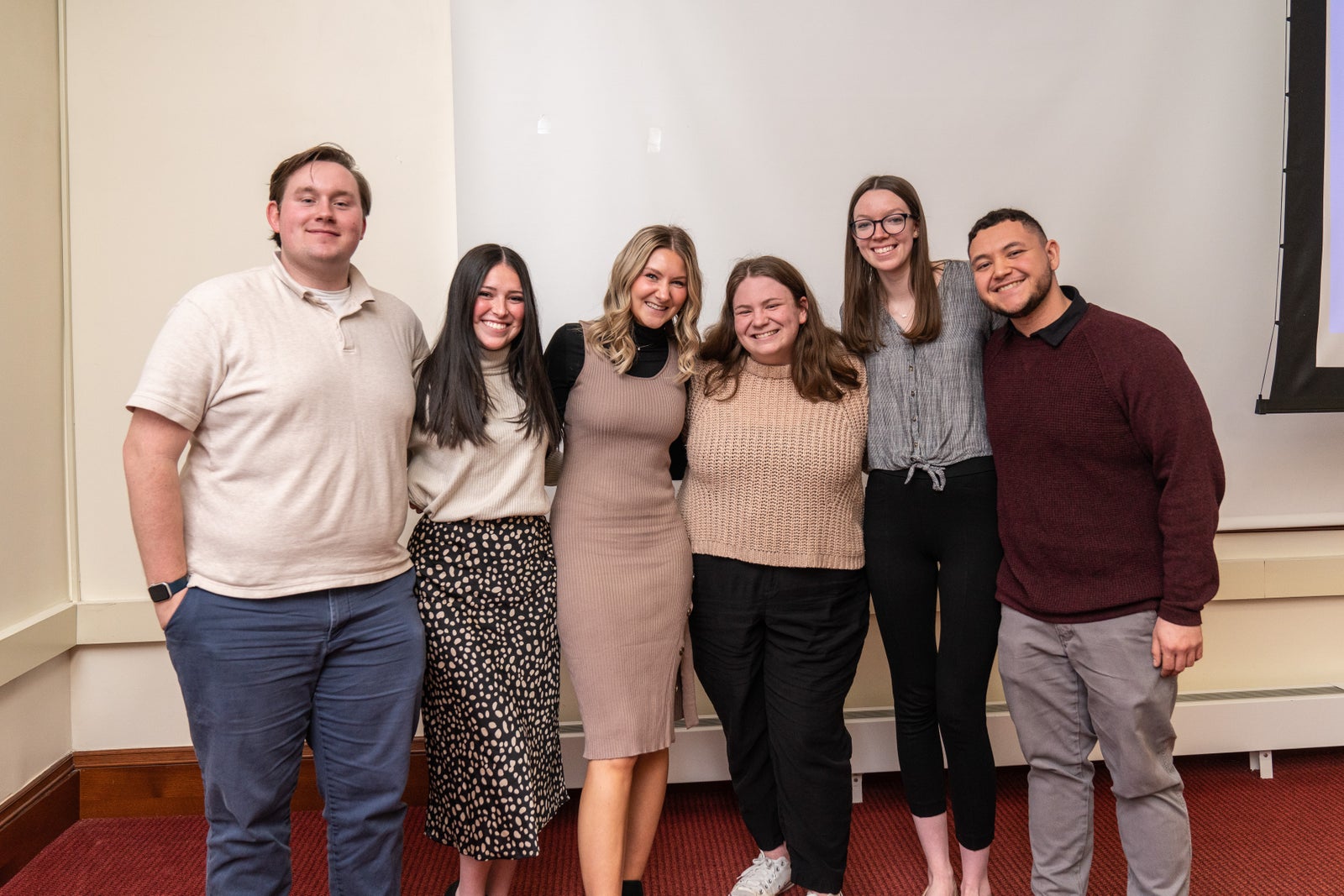Shape How Learning Happens—Anywhere it Happens
Education goes far beyond the classroom. In Emmanuel’s educational studies major, you’ll build transferable skills—like communication, leadership, and collaboration—that prepare you for a wide range of roles in curriculum development, training, human resources, nonprofit leadership and education policy. Whether you're planning to work in a school, a museum, a business or a government agency, this major helps you understand how people learn and how to help them thrive.
A Best-in-Class Experience
Get to know the people and programs that will define your academic journey.

Learning Through Service, Teaching With Purpose
From after-school programs to Boston classrooms, Emmanuel students discover their path through hands-on experience.

Meet the Faculty
Our distinguished faculty publish, exhibit and research. Present, compose and chair. Inspire and collaborate.
The Curriculum
View the 2024-2025 Academic Catalog to find course titles, numbers and descriptions.
Requirements for a Major in Educational Studies
Required courses:
- EDUC1111 Great American Experiment: Education for All in a Diverse Society (SA) (SS) (SJ)
- EDUC2111 Learning, Teaching and the Elementary Curriculum OR EDUC2311 Learning, Teaching, and the Secondary Curriculum
- PSYCH2303 Child Development OR PSYCH2403 Adolescent Development (SA) (SS)
- EDUC3210/POLC3210 Politics of Education Policy (SJ)
- IDS4194 Education Capstone Internship
Choose an additional five courses from the list below, one of which must be at the 3000 or 4000 level:
- ART3501 Methods and Materials Teaching Art
- EDUC2202 Practical Music Skills (VCI)
- EDUC2212 Teaching All students Grades 1-6
- EDUC2213 Teaching All Students Grades 5-12
- EDUC3211 Literacy Methods I
- EDUC3213 Math Methods for Elementary Grades
- EDUC3212 Literacy Methods II
- EDUC3215 Exploration in Science
- EDUC3300 Sheltered English Instruction: Teaching English Language Learners
- EDUC3311 Managing the Classroom Learning Environment
- EDUC3313 Math Methods for Middle/HS
- EDUC3314 Science Methods Middle and High School
- EDUC3317 Spanish Methods – Middle and High School
- EDUC3318 English Instructional Methods Grades 5-12
- EDUC3467 Educating Diverse Students
- EDUC4491 Teaching Students with Disabilities for General Education Professionals
- EDUC4493 Literacy and Language Development for English Learners
- ENGL3307 Survey of Literature for Children
- PSYCH2203 Social Psychology
- PSYCH3210 Child Psychopathy
What can I do with a degree in educational studies?
A degree in education studies can prepare you for a variety of careers in education-related fields that don't involve classroom teaching. Some potential career paths include:
- Education policy analyst or researcher: You could work in a government agency or think tank to analyze and evaluate education policies and programs.
- Curriculum developer: You could work for a school district, education publisher, or nonprofit organization to develop and design curriculum materials and resources for teachers.
- Educational program coordinator: You could work for a nonprofit or community organization to develop, implement, and manage educational programs for children and youth.
- Education advocate or lobbyist: You could work for a nonprofit organization or government agency to advocate for policies and funding that support education and student success.
- Educational consultant: You could work as a consultant to school districts, educational organizations, or private companies, providing expertise on a range of topics such as curriculum design, assessment, and educational technology.
- Educational writer or editor: You could work as a writer or editor for an educational publisher, creating and editing materials for teachers and students, including textbooks, lesson plans, and assessments.
- Education technology specialist: You could work for a school district or educational technology company, providing training and support for teachers and students on the use of technology in the classroom.
Educational Studies majors develop a broad range of skills that are valuable in various educational and related fields. Here are some in-demand skills for Educational Studies majors:
- Teaching and Instructional Skills: Ability to plan and deliver effective lessons and educational programs tailored to diverse learning needs.
- Curriculum Development: Skills in designing, evaluating, and improving educational curricula and materials.
- Assessment and Evaluation: Proficiency in designing and administering assessments, analyzing results, and using data to inform instruction and program development.
- Communication Skills: Strong written and verbal communication abilities for interacting with students, parents, colleagues, and other stakeholders.
- Cultural Competency: Understanding and respecting diverse cultural backgrounds and creating inclusive educational environments.
- Educational Technology: Knowledge of current educational technologies and tools, including online learning platforms, digital resources, and classroom technology.
- Research Skills: Ability to conduct educational research, analyze data, and apply findings to improve educational practices.
- Leadership and Teamwork: Skills in leading teams, collaborating with colleagues, and contributing to school and community initiatives.
- Policy Analysis: Understanding of educational policies, regulations, and their implications for practice.
- Advocacy: Skills in advocating for students, educational equity, and improvements in the education system.
- Problem-Solving: Ability to identify educational challenges and develop effective solutions.
- Adaptability: Flexibility to adapt to changing educational environments and requirements.
- Organizational Skills: Strong organizational and time management skills for managing multiple tasks and responsibilities.
- Ethical Awareness: Understanding of ethical issues in education and commitment to professional integrity and responsibility.
- Public Speaking: Confidence and skill in speaking before groups, whether in the classroom, at meetings, or at conferences.
- Conflict Resolution: Techniques for resolving conflicts and addressing issues that arise among students, parents, and colleagues.
- Mentorship and Coaching: Skills in mentoring and coaching students or junior staff members to support their growth and development.
These skills are essential for careers in teaching, educational administration, curriculum development, educational policy, educational research, and various roles within non-profit organizations and educational technology companies. Educational Studies majors can leverage these skills to make a significant impact in the field of education and beyond.
Where Essential Values and Skills Meet the Real World
Along with areas of knowledge and major requirements, you will cultivate essential values in the classroom and complete two courses in each area:
- Social Justice (SJ): Develop knowledge, skills, values and motivation to participate beneficially in activities of personal and public concern.
- Diversity & Multiculturalism (DM): Understand the complexity of identity the historical truths of different cultural perspectives to address bias and examine contemporary social issues.

One hundred percent of Emmanuel students complete an internship or practicum as part of the core curriculum. In a city as dynamic as Boston, your options are bound only by the limits of your curiosity.
Students from the School of Education complete their student teaching at many sites in Boston, including Boston Latin School, Cathedral High School, Eliot Innovation School, Fenway High School, OLPH Mission Grammar School, Richard J. Murphy School, and the Maurice Tobin School.

In all majors, the Capstone Experience involves completing a significant piece of work that requires the integration and application of learning from multiple courses.
The student teaching practicum and capstone seminar in the final year of study are the culminating experience for students completing majors in education. The experience integrates supervised student teaching with a seminar that requires active reflection on instructional practice. Students complete a portfolio to demonstrate their achievement of the learning goals of the Education major.

Education Spotlight
See more news and stories related to the School of Education


